MVC_part1
MVC_part1
「單一職責原則(Single Responsibility Principle,SRP)」
Buld MVC Project
1.create Project
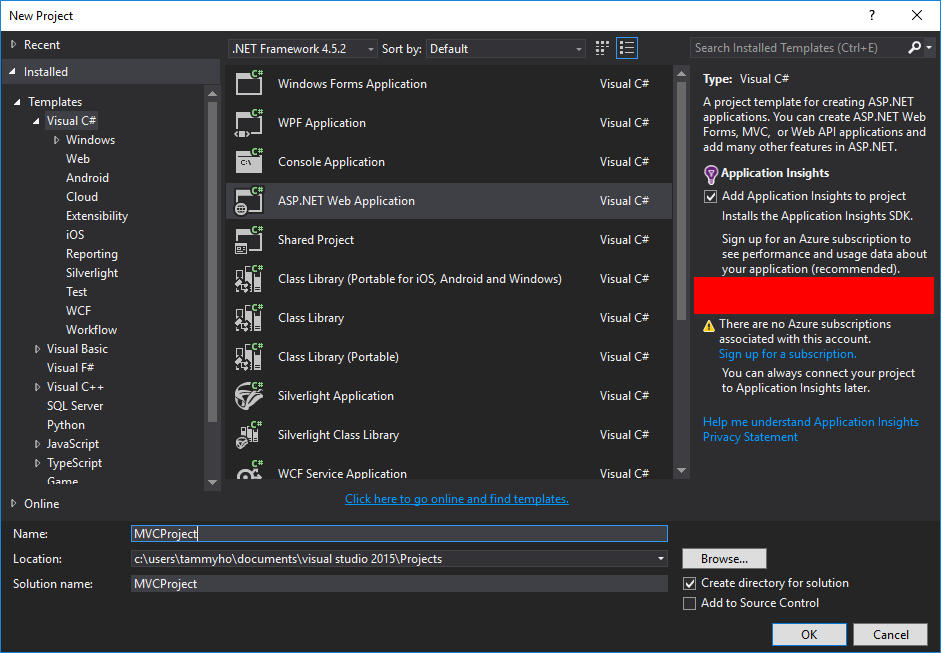
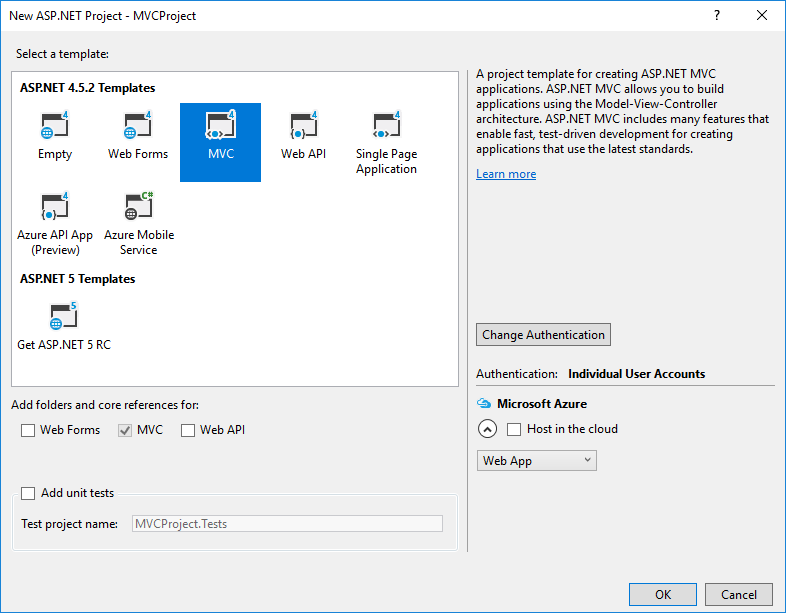
2.Add ADO.NET Entity Framework
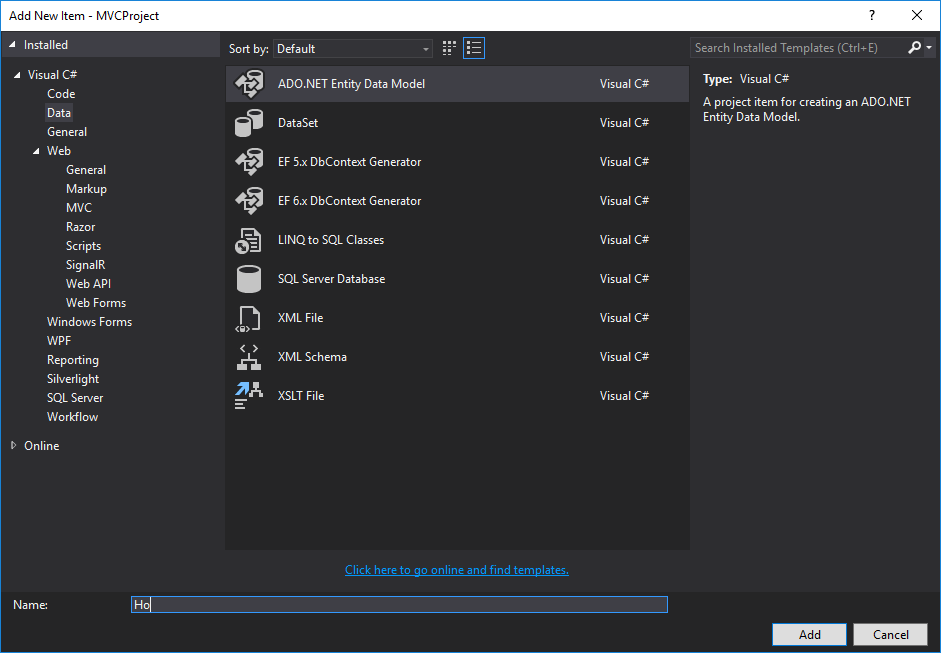

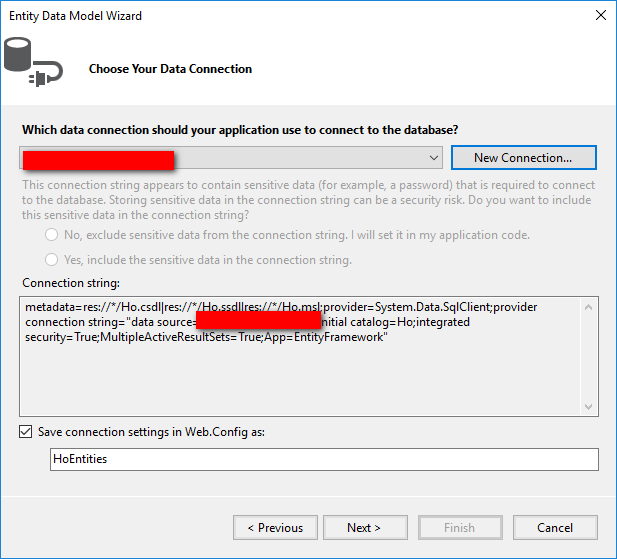
3.create controller
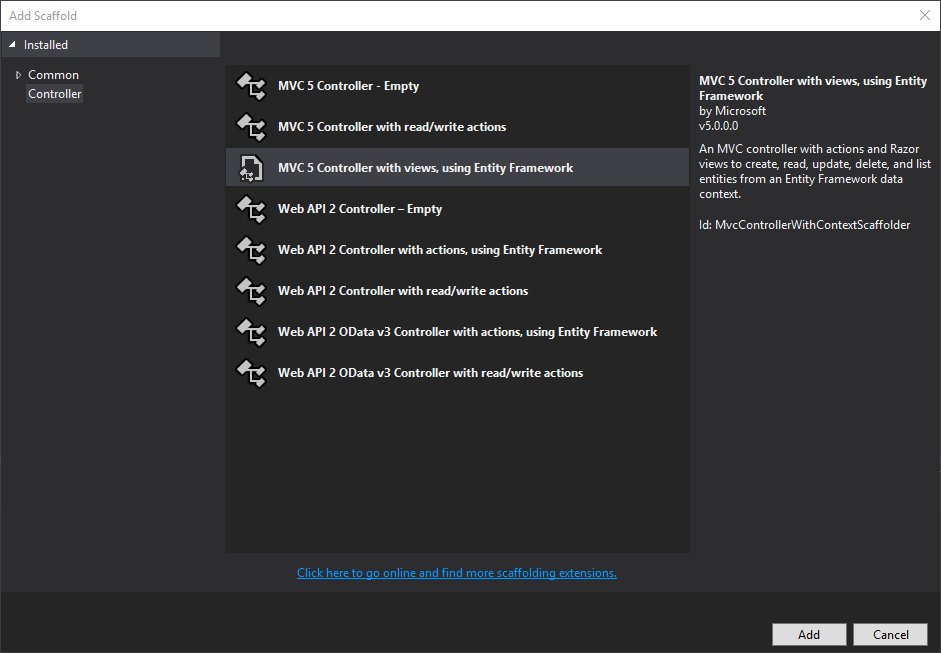
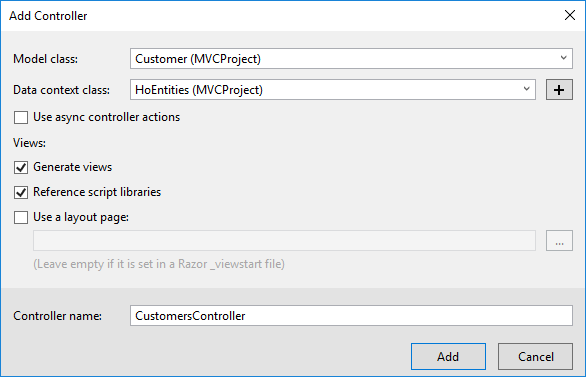
4.add Repository -> 把資料庫操作方法從 Action 方法給抽離出來,通常都會使用一種設計模式「Repository Pattern(倉儲模式)」
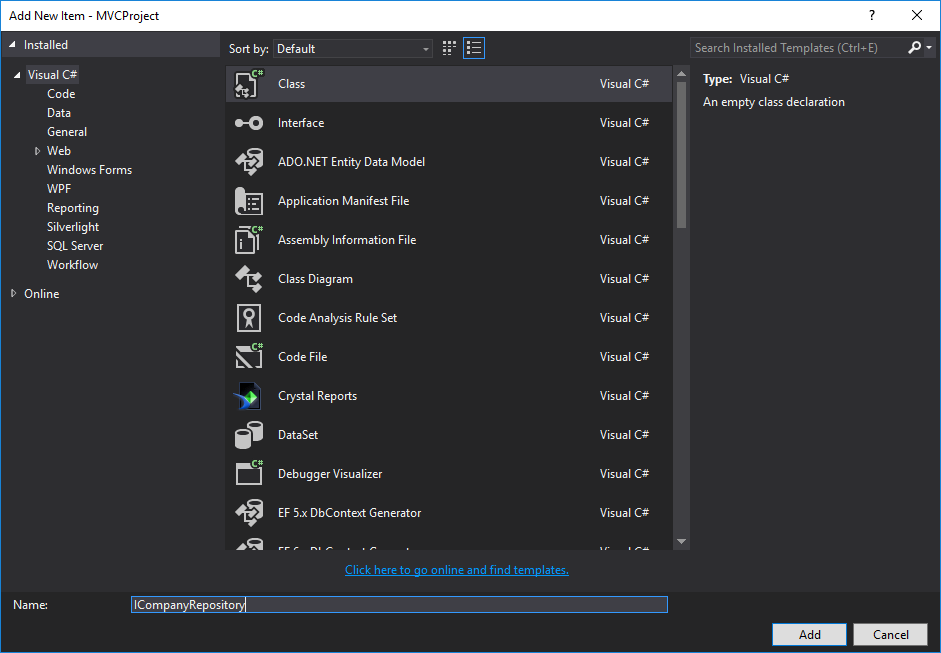
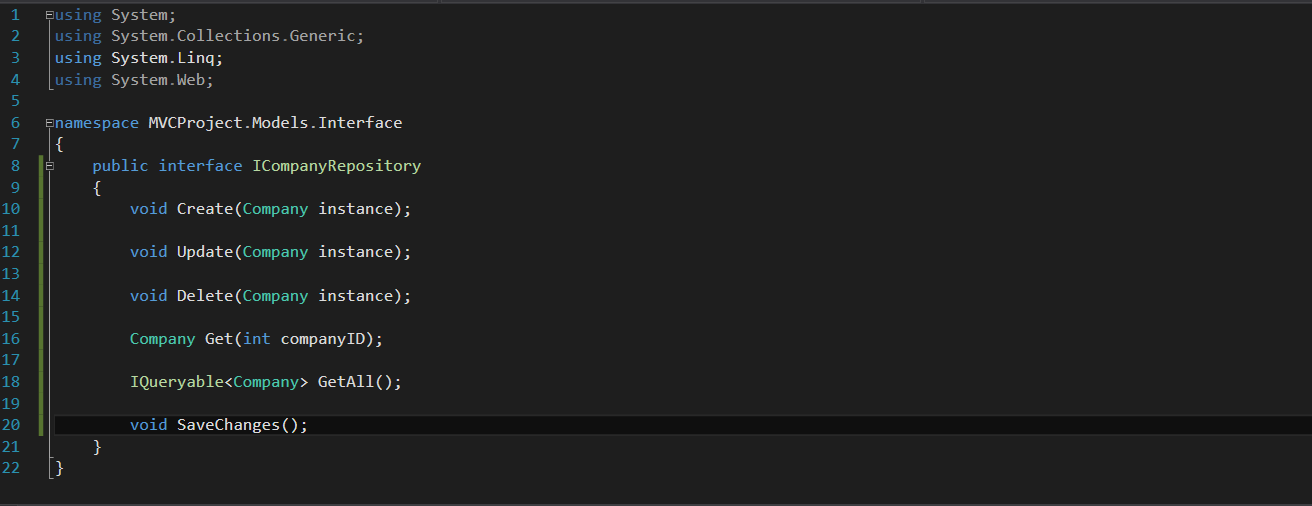
5.instance interface ->最後實作了 IDispose 介面,讓資料操作完成後可以釋放資源,
using MVCProject.Models.Interface;
using System;
using System.Collections.Generic;
using System.Data.Entity;
using System.Linq;
using System.Web;
namespace MVCProject.Models.Repository
{
public class CompanyReposity : ICompanyRepository, IDisposable
{
protected HoEntities db { get; private set; }
public CompanyReposity()
{
this.db = new HoEntities();
}
public void Create(Company company)
{
if (company == null)
{
throw new ArgumentNullException("instance");
}
else
{
db.Companies.Add(company);
db.SaveChanges();
}
}
public void Update(Company company)
{
if (company == null)
{
throw new ArgumentNullException();
}
else
{
db.Entry(company).State = EntityState.Modified;
this.SaveChanges();
}
}
public void Delete(Company company)
{
if (company == null)
{
throw new ArgumentNullException();
}
else
{
db.Entry(company).State = EntityState.Deleted;
this.SaveChanges();
}
}
public Company Get(int companyID)
{
return db.Companies.FirstOrDefault(x => x.CompanyID == companyID);
}
public IQueryable<Company> GetAll()
{
return db.Companies.OrderBy(x => x.CompanyID);
}
public void SaveChanges()
{
this.db.SaveChanges();
}
protected virtual void Dispose(bool disposing)
{
if (disposing)
{
if (this.db != null)
{
this.db.Dispose();
this.db = null;
}
}
}
public void Dispose()
{
this.Dispose(true);
GC.SuppressFinalize(this);
}
}
}
6.use in Controller -> 先建立一個類別為 ICategoryRepository 的私有欄位,然後在建構式中再以 CategoryRepository 類別去建立 instance,

// GET: Companies
public ActionResult Index()
{
var companies = this.CompanyRespository.GetAll().ToList();
return View(companies);
}
// GET: Companies/Details/5
public ActionResult Details(int? id)
{
if (!id.HasValue)
{
return RedirectToAction("index");
}
else
{
var company = this.CompanyRespository.Get(id.Value);
return View(company);
}
}
// GET: Companies/Create
public ActionResult Create()
{
return View();
}
// POST: Companies/Create
[HttpPost]
[ValidateAntiForgeryToken]
public ActionResult Create(Company company)
{
if (company != null && ModelState.IsValid)
{
this.CompanyRespository.Create(company);
return RedirectToAction("index");
}
else
{
return View(company);
}
}
// GET: Companies/Edit/5
public ActionResult Edit(int? id)
{
if (!id.HasValue)
{
return RedirectToAction("index");
}
else
{
var company = this.CompanyRespository.Get(id.Value);
return View(company);
}
}
// POST: Companies/Edit/5
[HttpPost]
[ValidateAntiForgeryToken]
public ActionResult Edit( Company company)
{
if (company!=null && ModelState.IsValid)
{
this.CompanyRespository.Update(company);
return View(company);
}
else
{
return RedirectToAction("index");
}
}
// GET: Companies/Delete/5
public ActionResult Delete(int? id)
{
if (!id.HasValue)
{
return RedirectToAction("index");
}
else
{
var company = this.CompanyRespository.Get(id.Value);
return View(company);
}
}
// POST: Companies/Delete/5
[HttpPost, ActionName("Delete")]
[ValidateAntiForgeryToken]
public ActionResult DeleteConfirmed(int id)
{
try
{
var company = this.CompanyRespository.Get(id);
this.CompanyRespository.Delete(company);
}
catch (DataException)
{
return RedirectToAction("Delete", new { id = id });
}
return RedirectToAction("index");
}